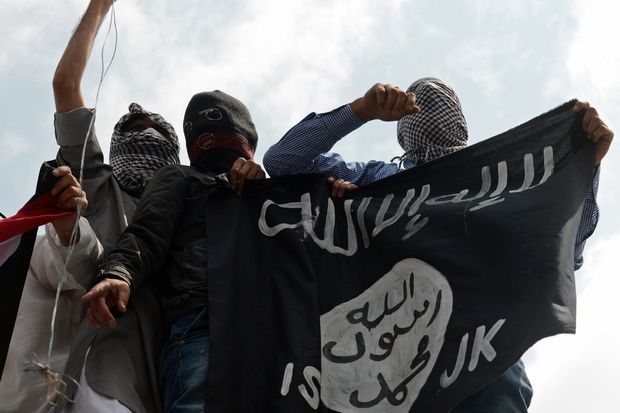Listen
In recent months, as the country went through a general election, our focus has been on our own domestic debates. Meanwhile, the situation in Iraq has deteriorated significantly. After intense fighting, the jihadist group Isis has now taken the city of Ramadi. They already control Fallujah and Mosul. A growing body of opinion says that something must be done, before the group moves on Baghdad or organises a major terror strike over here.
But what? There are plenty of reasons not to take action. Our interventions in Iraq have not been successful, to put it mildly. Looking at the state of the world today — and the Middle East in particular — any government or people would be justified in feeling some trepidation and, in the case of Iraq, a certain fatigue with the whole subject. The British government thought that, with enough money and determination, we could, as Tony Blair said, ‘reorder this world around us’. It turns out that reordering Iraq — never mind the world — is much harder than anticipated. As we have seen there, and in Libya, if you topple a dictator, there’s no way of knowing what comes next.
We have fought in Fallujah before. In 2004, when it had become a stronghold of insurgents after the overthrow of Saddam Hussein, the American army fought one of its hardest battles of that war. US troops fought house to house to clear the city of insurgents. More than 100 American soldiers were killed and hundreds more injured. The battle for Ramadi, which took place at the same time, was equally gruelling and bloody.
Twelve years on, Isis’s success poses difficult questions. How many times must outside forces return? Are such cities better left alone? And why are Iraqi security forces — trained at such enormous cost to the UK, US and other allies — so incapable of standing up and fighting?
What was all that training for if the Iraqi army simply dissolves when it faces an enemy, instead of defending the civilians of Iraq? The story in Ramadi this week was the same as that in Mosul last year: of Iraqi troops abandoning their posts and their weapons. The sight of Iraq’s forces being airlifted away from the fight by helicopters is one of the most pitiful sights in a pitiful business. Elsewhere in the country, Iranian forces, which have been colluded with at such high political and diplomatic risk, turn out to be less effective than expected.
But despair is not an adequate response. As a result of this week’s gains, the fanatical death cult has control of another major city: worse than that, Ramadi is less than 70 miles from Baghdad, which means that Isis now hold a fortified position within striking distance of Iraq’s capital.
Twelve years ago the public in Britain — as in Europe and America — were bitterly divided over the wisdom of invading Iraq. It is a still suppurating wound. The argument that Saddam was not just someone who had committed genocides but a leader who would be a future threat was not believed by large sections of the public. Isis are more obviously sadistic than Saddam ever was, and they are less ambiguous about their barbarism. They glorify atrocities. When they behead Christians on the shores of the Mediterranean in Libya or in the historic epicentre of Iraqi Christianity around Nineveh, they record their acts and broadcast them to the world on social media. When they kill Shia Muslims by the roadside or burn a young Jordanian pilot alive in a cage, they want the world to know.
This campaign is effective not least in spreading fear among those who might otherwise stand up to them — a reminder that terror is a deeply effective tactic. It also means that nobody can have any illusions about what more Isis would do if they have the chance.
Yet there is a reluctance to acknowledge not so much the nature of Isis, as their reach. They used to be simply one militant group among many fighting for dominance in Syria. Now they are not only a cross-border expanding force, but an entity which considers itself a caliphate and behaves as if it were a state. Perhaps even more importantly, they have already been able to inspire imitation franchise movements across the Middle East and Africa. Last month they inspired an attack on a cartoon contest in Texas. The gunmen’s attack on the contest was meant to impress and enforce Isis’s literalist and fundamentalist version of Islam inside the borders of the United States. The significance of that — and its implications for America and Europe’s security — seems barely to have registered.
A sense of paralysis in the West is perhaps inevitable after our foreign policy failures in the last decade. Nobody is eager to commit troops to Iraq, and every government in the world must dread the consequences of putting ‘boots on the ground’. Yet at some stage, if Isis continues to surprise the world with their territorial gains, the world will have to consider a more concerted reaction.
Isis are in many ways our worst possible enemy. As they grow in size and strength, the challenge they present becomes more serious and complex. It is time for the Prime Minister to start thinking about his options.
Got something to add? Join the discussion and comment below.
Get 10 issues for just $10
Subscribe to The Spectator Australia today for the next 10 magazine issues, plus full online access, for just $10.
You might disagree with half of it, but you’ll enjoy reading all of it. Try your first month for free, then just $2 a week for the remainder of your first year.














Comments
Don't miss out
Join the conversation with other Spectator Australia readers. Subscribe to leave a comment.
SUBSCRIBEAlready a subscriber? Log in